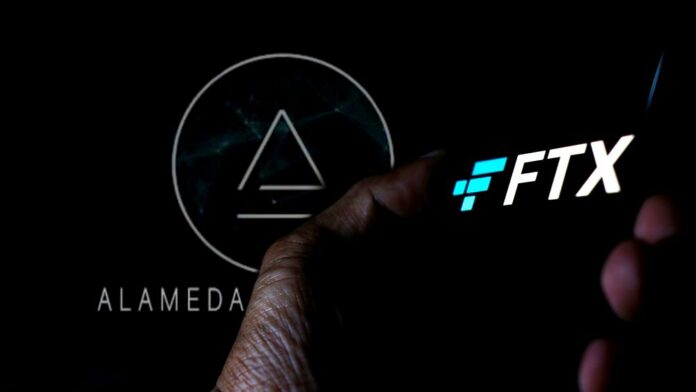Testimony from Matt Huang, co-founder and managing partner of crypto investment firm Paradigm, in the Sam Bankman-Fried trial may help prosecutors convince jurors that the former cryptocurrency mogul defrauded investors.
Huang testified Thursday that he and his company were unaware of a number of business practices at FTX, which were red flags that would have affected his decision to invest in the company. Namely, FTX's use of client funds to prop up Bankman-Fried's hedge fund, Alameda Research.
Government cooperation aside, Huang likely has his own reasons for testifying against Bankman-Fried and distancing his company from FTX. Paradigm is part of a class-action lawsuit (which was temporarily suspended in June) that accuses it, along with Sequoia Capital and Thoma Bravo, of promoting FTX to the detriment of its users.
According to Huang's testimony, Paradigm was also deceived.
In two financing rounds between 2021 and 2022, Paradigm invested 278 million dollars in FTX. When prosecutor Thane Rehn asked what Paradigm estimates the current value of that investment will be, Huang replied: "We've marked it down to zero."
That establishes that damage has been caused in the form of financial loss, one of the things the prosecution will have to establish to prove fraud.
The government will also have to prove misrepresentation, showing that the defendant made false statements or withheld important information to convince investors to shell out money. Prosecutors must also prove that investors relied on Bankman-Fried's misrepresentations. Finally, they will have to prove that Bankman-Fried intended to defraud them, which could prove more difficult.
Huang's testimony Thursday at least supports the establishment of three of four of those elements.
Paradigm began considering investing in FTX in 2019, according to Huang. During that time, Huang testified that he was told that FTX exchange wallets served as custodians of customer deposits and would always be available if customers wished to make withdrawals. He was not told that FTX could withdraw those deposits and use them for its own trading purposes.
When asked if he would have still invested in FTX knowing that, Huang replied, “probably not.”
“If it got out that they were doing that, I think the exchange would lose brand credibility and people wouldn't want to use it, so it would be bad for business,” Huang said.
Not only was Huang uninformed about FTX's habit of using customer deposits for its own purposes, he also testified that he did not know that Alameda could access those deposits and would not have invested in FTX if it had.
"Customer deposits are somewhat sacred," he said.
While Paradigm was considering investing in FTX, Huang said he expressed concerns about the link between Alameda and FTX. Mainly, he was concerned that Alameda, one of the platform's largest traders, would receive preferential treatment, which would also damage FTX's reputation.
Bankman-Fried told Huang that Alameda did not have preferential treatment on the platform. But prosecutors noted that Alameda was exempt from FTX's liquidation engine, a risk management strategy designed to automatically trigger the sale of assets if certain risk parameters are exceeded.
Huang said FTX's liquidation engine was a big part of why Paradigm was attracted to the company. He also agreed that Alameda's exemption is inconsistent with Bankman-Fried's statement that she did not receive preferential treatment.
“It would have meant that Alameda could trade with leverage on the platform and, if those trades didn't work out, it could ultimately incur a negative balance that would have to be repaid somehow,” Huang said. “In a typical case, that might come from money we were investing in the company that would go toward funding operations. But in any case, it would leave the company at risk of becoming insolvent.”
Rehn also attempted to establish that Bankman-Fried made false statements to convince Paradigm to invest. He pulled out an Excel spreadsheet that had been attached to an email Bankman-Fried sent to Huang showing FTX's financial statistics as of April 2021. The balance sheet showed FTX's approximate annualized revenue, estimating a net profit for the year. first quarter of 2021 of 85 million dollars. Rehn claimed that FTX had removed certain expenses from those financial statements to artificially inflate reported net earnings.
Throughout his testimony, Huang repeated that he had also expressed concerns to Bankman-Fried about FTX's lack of a board of directors and governance, which he said could lead to an unintended flight of value. While this did not ultimately stop Paradigm from investing in FTX, Huang testified that “SBF was very resistant to having investors on the board.”




